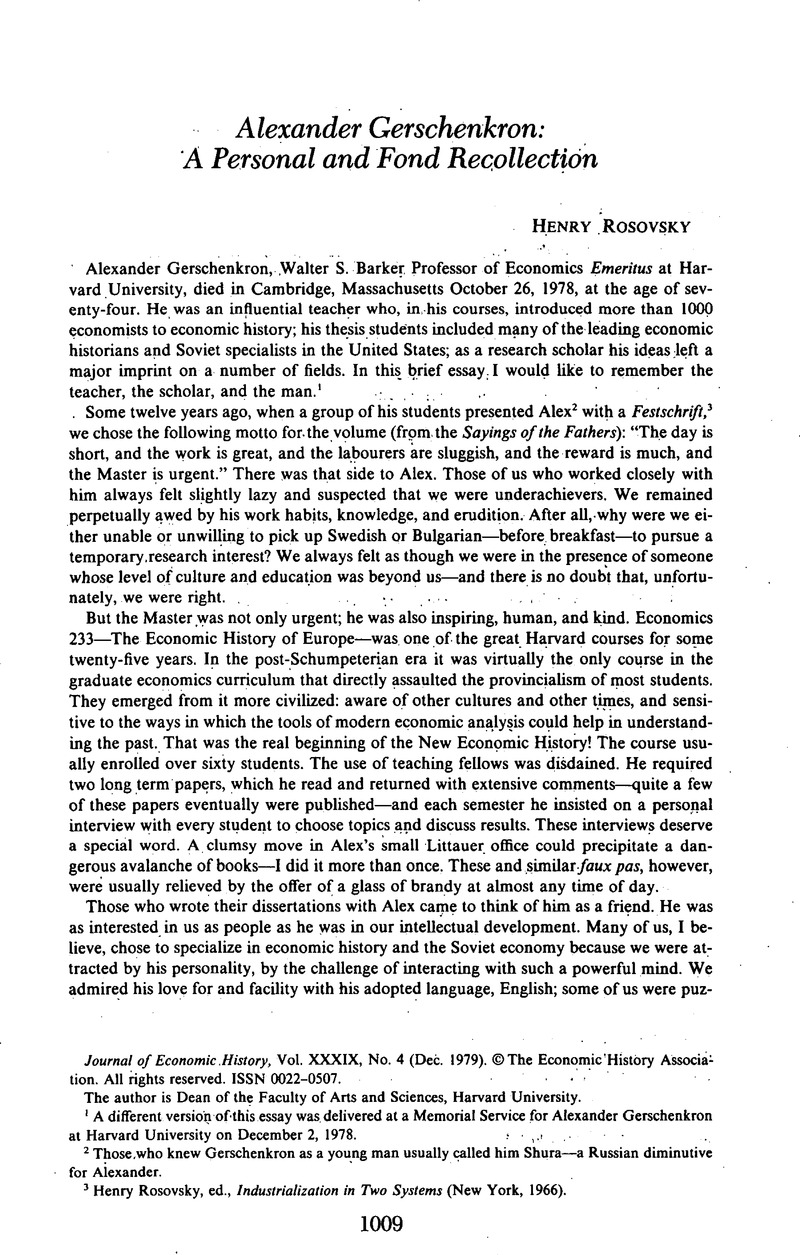Article contents
Alexander Gerschenkron: A Personal and Fond Recollection
Published online by Cambridge University Press: 11 May 2010
Abstract

- Type
- Memorial Articles
- Information
- Copyright
- Copyright © The Economic History Association 1979
References
1 A different version of this essay was delivered at a Memorial Service for Alexander Gerschenkron at Harvard University on December 2, 1978.
2 Those .who knew Gerschenkron as a young man usually called him Shura—a Russian diminutive for Alexander.
3 Rosovsky, Henry, ed., Industrialization in Two Systems (New York, 1966Google Scholar).
4 Aside from Bread and Democracy, Gerschenkron's major books were Economic Relations with USSR (1945); A Dollar Index of Soviet Machinery Output (1951); Economic Backwardness in Historical Perspective (1962); Continuity in History and Other Essays (1968); Europe in the Russian Mirror (1970); Mercator Gloriosus and Other Essays (1973); and An Economic Spurt That Failed (1977).
5 Distinguished Fellow of the American Economic Association; President of the Economic History Association; Member of the American Academy of Arts and Sciences, the American Philosophical Society, and the Swedish Academy; Corresponding member of the British Academy; Honorary Doctor of Letters, Oxford University, etc.
6 See Hoffmann, Walther G., The Growth of Industrial Economies (Manchester, 1958)Google Scholar, original German version published in 1931; and Veblen, Thorstein, Imperial Germany and the Industrial Revolution (New York, 1918Google Scholar).
7 Gerschenkron's, original statement is contained in “Economic Backwardness in Historical Perspective,“” in Hoselitz, Bert F., ed., The Progress of Underdeveloped Areas (Chicago, 1952Google Scholar).
8 Although Simon Kuznets made enormous contributions to our field, he is, I believe, more properly classified as an economist.
- 6
- Cited by




